The Liberal Party’s victory in the Canadian elections holds some promise for India-Canada ties, driven though it would be by cold pragmatism rather than cordiality. Given India’s decision to treat the diplomatic fracas between the two countries as a ‘Trudeau problem’ — and therefore unrelated to economic ties — and Canada’s massive falling-out with the United States, circumstances might favour reengagement.
The electoral decimation of the New Democratic Party (NDP) and its pro-Khalistan leader, Jagmeet Singh, also bodes well. However, India cannot ignore the fact that the incoming Carney administration will include antagonistic people, constituencies, networks, and indeed policies from the earlier administration. It is important for long-term outcomes to ensure that dangerous undercurrents are not left unchallenged in the interest of attractive shorter-term deals.
Very recently, on Sunday, during the Khalsa Day parade in the Greater Toronto Area (GTA), the Khalistanis called for the Hindu Canadian community to be expelled from the country, along with pro-Khalistan and pro-Pakistan posters and banners targeting Indian leaders, including Prime Minister Narendra Modi.
Anti-India and anti-Indian agendas are pervasive in the Canadian establishment, and they often find expression in the Trudeau-aligned ‘Toady media’. Replete with bias and double standards as they are, their real purpose is to shape local opinion in favour of a larger agenda. As an illustration, I discuss here three separate articles on the Canadian news site Global News. All three mention visas and foreign interference, but in very different ways. Read together, they tell a story of their own. I’ll begin with summaries of the primary stories the articles tell.
Story 1
Published in February 2025, it tells of an Indian national, Ankit Srivastava, being denied a permanent residency visa in Canada. The reason: a Canadian Security Intelligence Service (CSIS) report claimed that India’s Research & Analysis Wing (RAW) had ‘tasked’ Srivastava with influencing Canadian government officials and agencies. Srivastava denies this, saying he met Indian intelligence officials in his ‘capacity as a journalist’ and that they had requested him to ‘lobby Canadian politicians’ to look upon Indian policies favourably and offered to compensate him for it—an offer he says he ‘flatly’ refused.
A subsequent CSIS report added that Srivastava’s companies were accused of passing off fake websites as news portals [some of them Canadian] and that their objective was to push ‘pro-India rhetoric and publish content that is critical of Pakistan’. This seems to be a reference to an ‘investigation’ by Brussels-based organisation EU DisinfoLab. This so alarmed Canadian immigration authorities that they concluded that these websites ‘could be used to conduct operations in Canada to influence public opinion and information available to voters’ (which cannot be allowed in a democracy, of course), deemed Srivastava a ‘serious threat to Canada’, and barred him from the country. Immigration authorities also mentioned a CBC report mentioning an allegedly Srivastava-Group-linked non-governmental organisation (NGO) arranging the visit of two Members of the European Parliament to Kashmir. Srivastava has appealed and has had two wins in Canadian federal courts, but the process is still ongoing.
One could reasonably conclude—without making any claim for or against Srivastava and his companies—that Canadian authorities are within their rights to exercise caution about whom they admit. It is also clear that the Canadian establishment (through diplomatic engagement with India) or the Canadian legal system will decide the matter. The Indian government, people, or diaspora don’t get to decide it, and nor should they.
Global News takes the view that ‘Canada is facing an unprecedented Indian government foreign interference offensive that has allegedly included disinformation, political meddling and violence’ and that ‘Canadian officials have taken the fight against Indian foreign interference and disinformation to a new front: the immigration system.’
Story 2
Published in December 2024, this is primarily the story of Bikramjit Singh Sandhar being denied an Indian visa in 2016 for making pro-Khalistan statements. Broadcaster and founder of ‘Friends of Canada and India’, Maninder Singh Gill, and an immigration service provider are portrayed as Indian government fixers offering Sandhar and other prominent Sikhs a favourable review in return for signing a letter. The ‘objectionable’ letter contained statements like “I have never ever supported Khalistan or any other movement against India” and “[t]hough I live in Canada, I still love India.”
That India was tracking his activities and the prospect of signing the letter sent Sandhar into a tizzy worthy of a dysfunctional adolescent: “They’re trying to just disrupt somebody’s life and trying to shame their mindset. You can’t do that. You’re playing with people’s lives.” One Moninder Singh of the Sikh Federation of Canada elaborated on why this was ‘despicable’: “Those visas are a way for people to get back home, to tend to their families or businesses, and just basically be able to see places of worship in the land that they left to come to Canada.”
Given that Canadians with Khalistani notions are often involved with hostile intelligence agencies and organisations designated as terrorist in India and have the stated aim of dismantling Indian territorial integrity, one would expect _Global New_s, with its profound concern about foreign interference, to conclude that India was well within its rights to take these precautions. Surprisingly, it writes: ‘Visas have become a key tool of India’s foreign interference campaign.’
Ultimately, Sandhar didn’t sign the letter; rather, he explained the family reasons for his travel to consulate officials, and they issued him a visa. Diabolical stuff. That must explain why Global News didn’t challenge Sandhar when he insisted that it ‘was “absolutely” foreign interference’.
Story 3
Written a few days after Hardeep Singh Nijjar’s killing, this article deals with Nijjar’s arrival in Canada, amongst other things. As is well known now, Nijjar arrived in Toronto in 1997 on a fake passport and claimed asylum on the grounds of belonging ‘to a particular social group, namely, individuals associated with Sikh militants’. He seemed assured this association spoke in his favour. He narrated a tale of arrest, torture, and mortal danger in Punjab, but Canadian immigration officials distrusted both his story and his physician’s note confirming electrocution of ‘his “intesticles”’. Describing him as ‘unreliable and untrustworthy’, they rejected his application.
Eleven days later, Nijjar reapplied, having married a ‘B.C. woman who sponsored him to immigrate as her spouse’. In this application, however, he denied association with any ‘group that advocated “armed struggle or violence”’, which a Globe and Mail report states ‘ended up working against him’ as ‘he didn’t have a well-founded fear of persecution in India given he’d said he wasn’t involved in the militancy.’ Nijjar’s militancy credentials apparently didn’t meet Canadian immigration’s high bar. Immigration officials also thought his was a ‘marriage of convenience’, noting that the woman ‘had arrived in Canada in 1997, sponsored by a different husband’. Nijjar’s appeal to the courts failed in 2001, but later he identified himself as a Canadian citizen. Immigration authorities ‘declined to comment, stating privacy legislation’.
The number of immigration-related frauds Nijjar committed is mind-boggling, yet he was mysteriously rewarded with permanent residency and citizenship. Before his death, he had known ties to the underworld and terror networks and was on a Canadian no-fly list, yet the Canadian parliament paid tribute to him. Global News may be justified in asking questions about India’s visa policies, but what explains the selective mutism of Canadian immigration authorities enabling Khalistani terrorists and welcoming violent people into the country?
The Bias Serves An Agenda
I point out these contradictions not to whine about bias–because countries like India can now hold their own–but to point to the ultimate aim of the bias: make the bias against India and the Indian diaspora structural through transnational repression and foreign interference legislations.
The Srivastava story–where Canada has a right to have its concerns addressed–is still a good example of this discourse playing out. Negative media or NGO reports target an individual or entity–often through official leaks–these are ‘endorsed’ by ideological allies, amplified, quoted almost as facts, and made the basis for policy. This is how things played out in the ‘Pannun Plot’ as well. What then becomes unnecessary in between media reporting and policy is a legal finding of wrongdoing.
Observe, for instance, that Srivastava, apart from claiming the CSIS report mischaracterised his statements, has stated that the EU DisinfoLab report had produced no evidence connecting his companies to those NGOs. He added that EU DisinfoLab faced ‘legal sanction and criticism’ for its work. EU DisinfoLab has dismissed Srivastava’s statement, and transnational repression law champion and ‘disinformation expert’, Marcus Kolga declared EU DisinfoLab and the report to be credible. An endorsement from a fellow Western activist like Kolga (himself the founder of DisinfoWatch) isn’t one to win over a sceptic, and EU DisinfoLab’s website–oddly for a transparency organisation – contains little information about its own funding or connections. This is important because credibility now demands more than a Western address: it demands balance regardless of the ‘brand’ of the NGO or media organisation.
Consider, for instance, that Srivastava has questioned how criticism of human rights violations by Pakistan was disinformation and how disseminating it made him ‘a danger to the security of Canada’. That Khalistan is a Pakistan-promoted project is widely accepted in academic and journalistic literature, so why not dispel any impression that Canada and its media are shielding their ally, Pakistan, and its own terrible record with handling Khalistani terrorism–perhaps at the behest of Khalistani elements? Why tiptoe guiltily around it?
Still on the matter of balance, it couldn’t be lost on Global News that by the logic that drives Sandhar’s story, Canada rejecting Srivastava’s visa application amounts to foreign interference in India. If the standard is that India must allow Khalistan activists to visit families, run businesses, and make pilgrimages in India while openly working to dismember it, then by what yardstick can it justify judging Srivastava?
The sensationalism about India’s ‘middlemen’ — people who can recommend visas or NGOs with political access — is equally disingenuous. No one who’s lived in a nation’s capital city has escaped a journalist, academic, activist, or businessperson who claimed connections to local politicians or diplomats. Such alternative-track interactions are common, used to smooth relations informally, and rarely weaponised as ‘foreign interference’. Maninder Singh Gill–erratic character though he seems to be–makes this pertinent point: ‘Why do consulates even exist in Canada? If everybody or anybody having good relations with them is branded as a foreign agent?’
Global News knows it’s disingenuous, but then why does it feign ignorance? To justify Justin Trudeau conducting foreign policy through tantrums? Or, more importantly, so anti-Khalistan diaspora members can be labelled Indian ‘proxies’ and politically neutralised in the name of foreign interference?
The fuss over the letter that offended Sandhar’s delicate sensibilities is much in the same vein. Sandhar’s fake shock notwithstanding, India makes no bones about monitoring pro-Khalistan elements through open sources, and Sandhar was president of a gurdwara in a Khalistani-activity hotbed (Nijjar was his successor). And, as the Indian government has asserted, it is India’s prerogative to insist that those seeking visas reject calls to harm its territorial integrity.
It is also worth noting that the Indian media reports Canadian ‘foreign interference’ claims widely, but Canadian media doesn’t give Indian objections much coverage. These objections include PM Trudeau and other politicians trying to influence Indian domestic matters like the farmer’s protests, Canada not acting on Indian extradition and provisional arrest requests, issuing visas to wanted criminals (many with false documentation), and Canadian visa authorities targeting, profiling, and denying visas to members of Indian security services. Perhaps Canada’s position is symbolically best represented by the Canadian Border Service Authority promoting a man on India’s wanted terror list to the rank of superintendent. And this list of objections excludes all the Khalistani activities that Canada shelters.
Why does the ‘Toady media’—ranked 14th in the World Press Freedom Index—pass off patronage of Sikh extremism as minority protection? Let me venture a guess: to serve political interests. In the recently concluded elections, the Sikh Federation of Canada (mentioned in the Sandhar story) flexed its political muscle in 30 ridings (seats). It demanded that candidates answer a questionnaire on issues including ‘foreign interference’ and ‘transnational repression’ and made particular references to India. Former CSIS official Daniel Stanton reliably turned up to cheerlead all things Khalistani. The tail wagged the dog and placed its interests above everyone else’s even at a time of national crisis.
Whatever the domestic factors, internationally the Khalistan movement was and remains a product of colonial Britain’s cynicism, Pakistan’s scheming patronage, the West’s Cold War exigencies, and now the West’s political compulsions. Ironically, elements of the Khalistan movement are tied to narcotics and gun running, terrorism, gangland activity, money laundering, and human trafficking—all at crisis levels in the West now—yet, by using weaknesses in the electoral system and lobbying, this parasitic movement wields disproportionate power.
And what’s playing out now is a blatant attempt to create policy and governance structures that formalise its agenda and biases. The results are already showing: in the name of minority protection, attacks on other minorities like Hindus are downplayed, diaspora-destructive policies are advanced in the name of foreign interference and transnational repression, and minority hate is fanned.
As Michael Rubin of the American Enterprise Institute, addressing Sikh organisations, writes: ‘The best way to ensure civil rights and communal safety is not to deny terror and silence valid discussion, but rather to stigmatise militancy and ostracise those who twist religion to justify terror.’ This should apply equally to Western politicians and media.
A true sign of a shift in Canadian intent towards India would be to see some of these glaring biases in discourse disowned. A good place for the Canadian media to start might be to hold public interest above a deceased terror and underworld figure’s privacy and investigate the approval of Nijjar’s visa.
Note: This is the concluding part of a four-article series on the Khalistan movement in North America. The first dealt with Canada’s record of embrace of Sikh extremism and failure to protect its opponents (including moderate Sikhs); the second dealt with how the Trudeau government and Canadian (‘Toady’) media’s moral posturing was an exercise in self-deception; the third examined the whole ‘Pannun Plot’ as a ‘narrative offensive’; and this last piece looks at ‘Toady media’ coverage as groundwork for structuralising a pro-Khalistan agenda in Canada (and perhaps the US). These four articles together provide a broad overview of the Khalistan issue in North America from the 1980s to the present time. The impact of the leadership change in the United States and Canada and the progress of these ‘foreign interference’ and ’transnational repression’ legislations will constitute the next article.
The writer is the published author of two novels (Penguin, India and Westland, India) based out of the San Francisco Bay Area. Views expressed in the above piece are personal and solely those of the writer. They do not necessarily reflect Firstpost’s views.


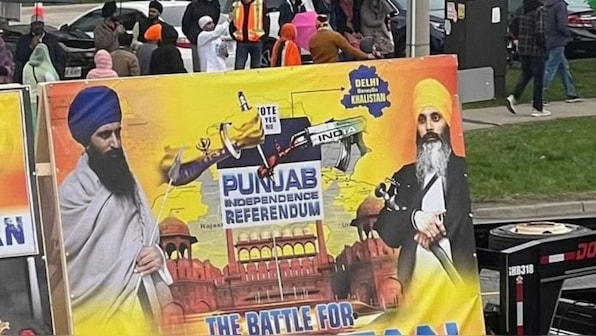)
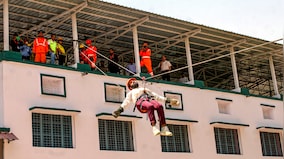)
)
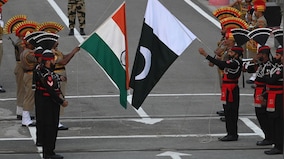)
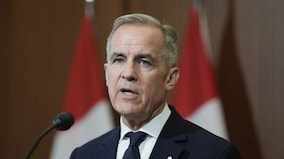)
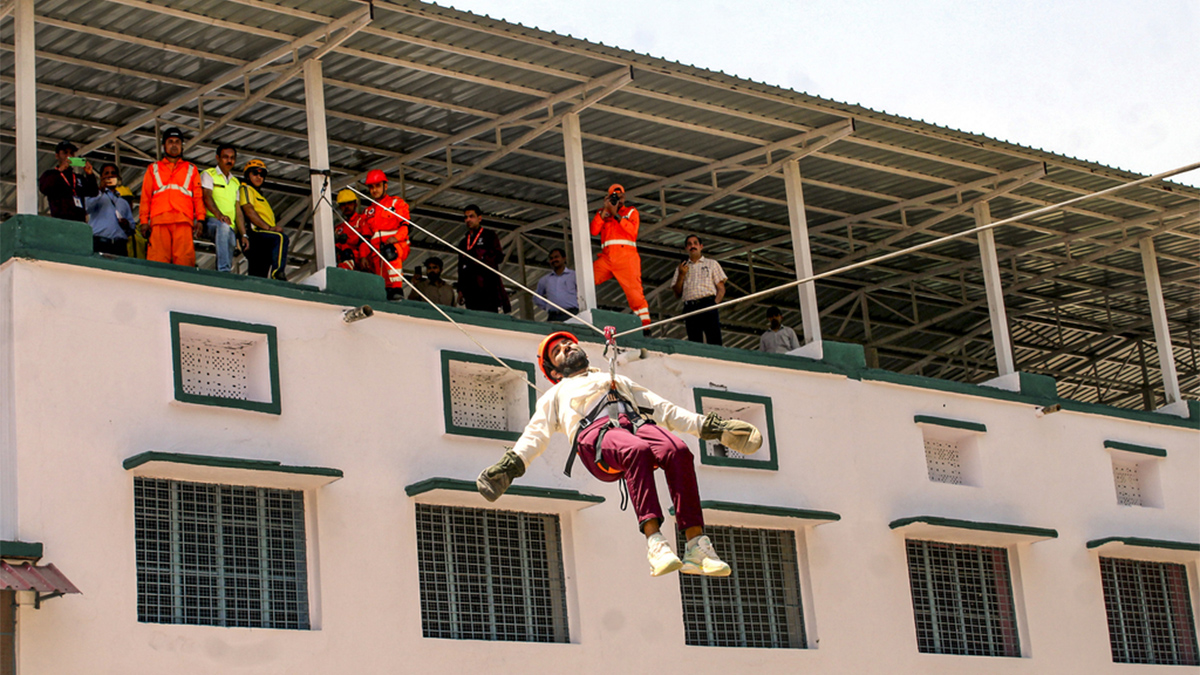)
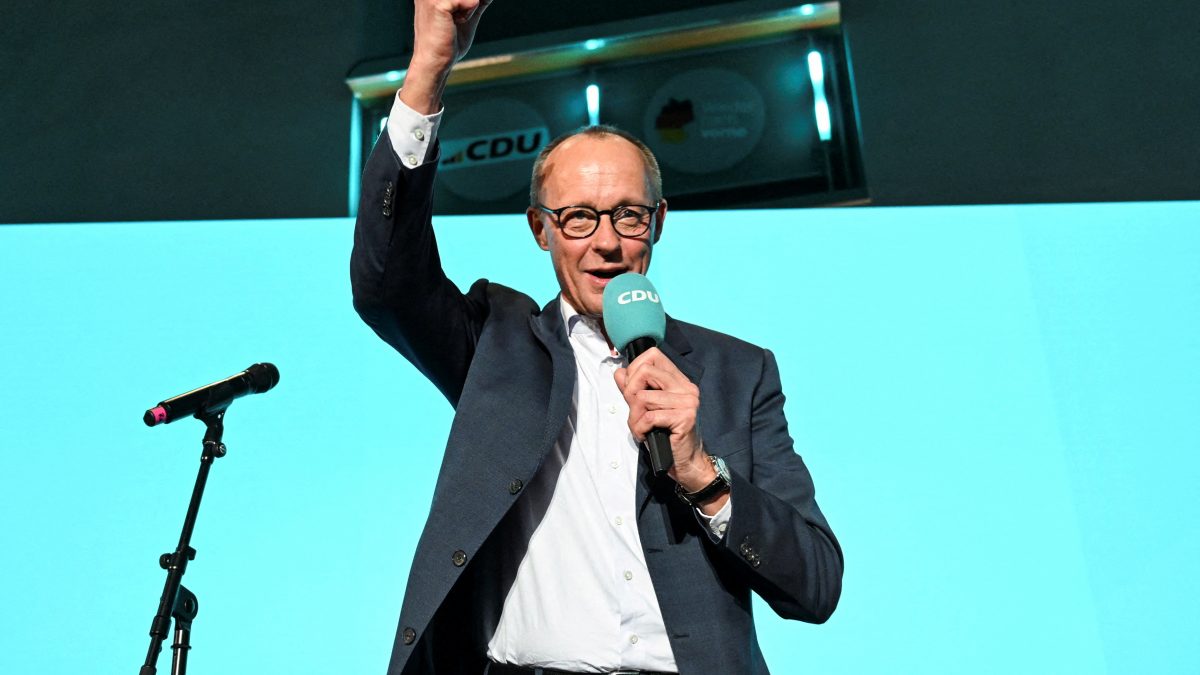)
)
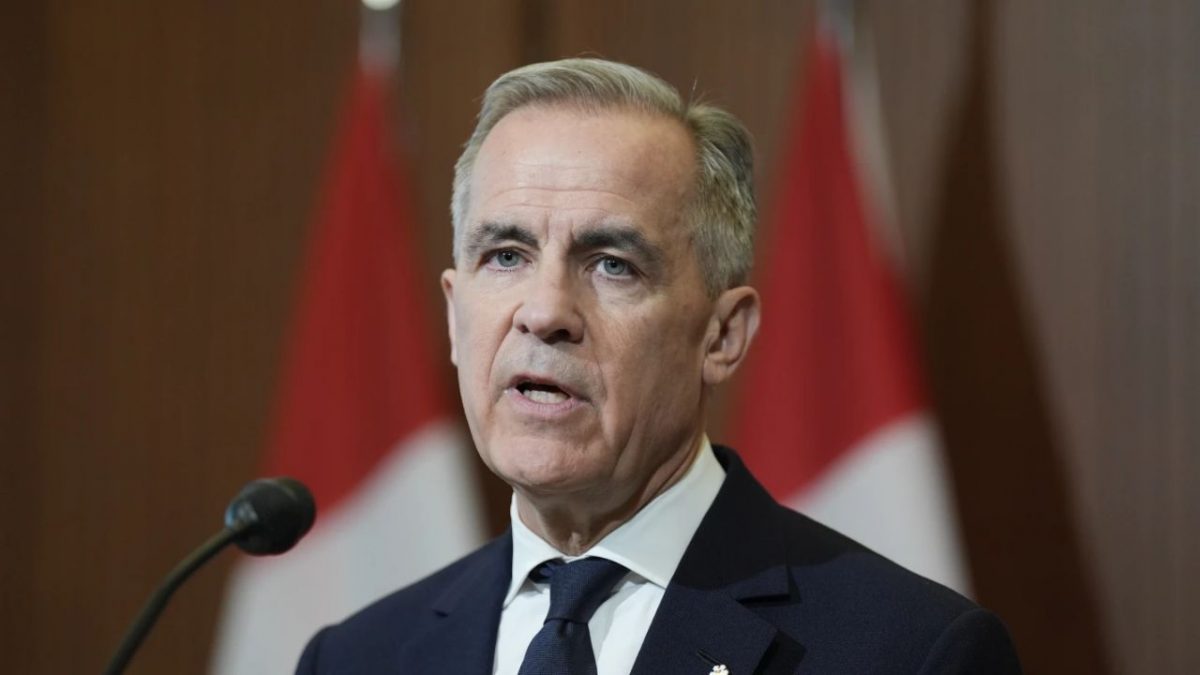)